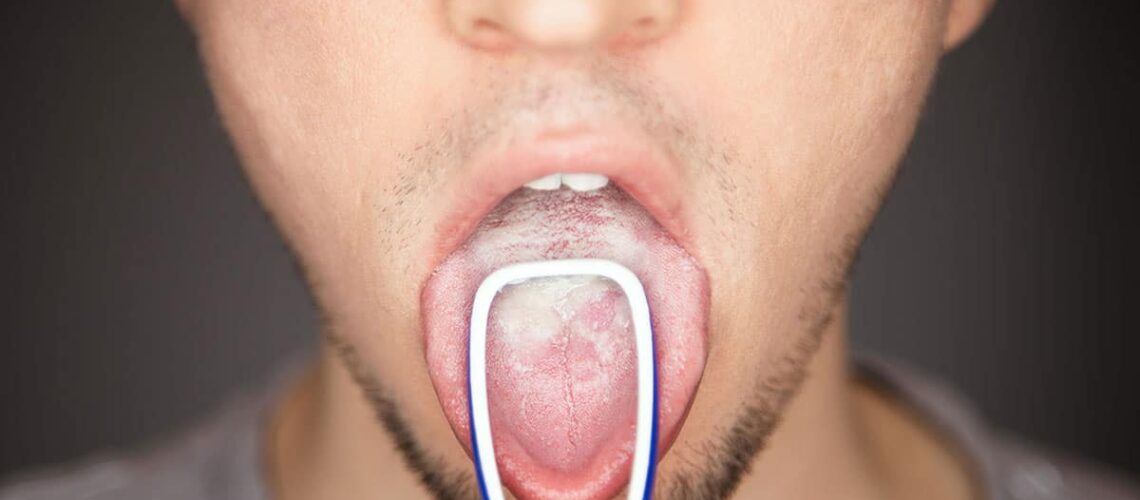Gum health is not only critical for oral hygiene but also plays a significant role in respiratory health. Research has shown a strong link between gum disease and respiratory conditions, highlighting the importance of maintaining healthy gums to support overall well-being. So, are respiratory conditions connected to your gum health? Ye,s they are, so keep reading to learn more about how to protect your overall health.
Table of Contents
How Gum Disease Contributes to Respiratory Conditions
When gums are inflamed or infected (as in gingivitis or periodontitis), harmful bacteria from the oral cavity can enter the respiratory tract. This happens in several ways:
Inhalation of Oral Bacteria
During breathing, especially in individuals with compromised immunity or pre-existing lung conditions, bacteria from infected gums can be inhaled into the lungs.
These bacteria can cause or worsen respiratory infections, such as pneumonia or bronchitis.
Aspiration in Vulnerable Patients
Individuals who are bedridden, elderly, or have difficulty swallowing (e.g., stroke patients) are more likely to aspirate saliva containing harmful oral bacteria. This can lead to aspiration pneumonia, a severe and sometimes fatal condition.
Systemic Inflammation
Chronic gum disease triggers inflammation throughout the body, including in the lungs.
The inflammatory markers produced in response to oral bacteria can exacerbate existing respiratory conditions, such as chronic obstructive pulmonary disease (COPD).
Respiratory Conditions Linked to Gum Health
Pneumonia
Pneumonia is an infection of the lungs caused by bacteria, viruses, or fungi.
Studies indicate that individuals with gum disease are at a higher risk of bacterial pneumonia due to the inhalation of oral pathogens into the lungs.
Chronic Obstructive Pulmonary Disease (COPD)
COPD, which includes chronic bronchitis and emphysema, is characterized by persistent lung inflammation and airflow obstruction.
Gum disease worsens inflammation in the lungs, accelerating the progression of COPD.
Asthma
Gum disease may exacerbate asthma symptoms by increasing systemic inflammation and introducing additional irritants to the airways.
While more research is needed, maintaining oral health may reduce asthma flare-ups.
Aspiration Pneumonia
Common in elderly and medically compromised individuals, aspiration pneumonia occurs when bacteria-filled saliva or food particles are inhaled into the lungs.
Poor oral hygiene and gum disease significantly increase this risk.
Why Oral Bacteria are a Problem for the Lungs
The bacteria commonly associated with gum disease, such as Porphyromonas gingivalis and Fusobacterium nucleatum, are known to cause infections in the lungs. These bacteria release toxins and trigger immune responses that can damage lung tissue and exacerbate existing conditions.
Who is Most at Risk?
Certain groups are more vulnerable to respiratory complications linked to gum disease:
Elderly Adults: Reduced immune function and decreased ability to maintain oral hygiene increase the risk of bacterial aspiration.
Individuals with COPD or Asthma: Pre-existing inflammation in the lungs makes them more susceptible to additional irritation from oral bacteria.
Hospitalized Patients: Intubated patients or those on ventilators are at a higher risk of ventilator-associated pneumonia (VAP), often linked to poor oral hygiene.
How to Protect Your Respiratory Health Through Gum Care
Taking steps to maintain healthy gums can significantly reduce the risk of respiratory complications:
Practice Excellent Oral Hygiene
- Brush twice daily, floss regularly, and use antimicrobial mouthwash to reduce bacterial load in the mouth.
- Removing plaque and bacteria from the gumline reduces the chances of oral bacteria being inhaled into the lungs.
Get Regular Professional Cleanings
- Visit your dentist every six months (or more often if you have gum disease) for thorough cleanings.
- Professional scaling removes plaque and tartar buildup that can harbour harmful bacteria.
Hydrate and Stimulate Saliva Production
- A dry mouth allows bacteria to thrive, increasing the risk of respiratory infections.
- Drink plenty of water and chew sugar-free gum to stimulate saliva production, naturally washing away bacteria.
Quit Smoking
- Smoking damages gum tissues, reduces blood flow, and increases the risk of both gum disease and lung infections.
- Quitting smoking improves both oral and respiratory health.
For High-Risk Patients:
If you or a loved one is in a hospital or care facility, ask for professional oral hygiene care to reduce the risk of aspiration pneumonia.
Special oral care protocols can lower bacterial levels, including suction toothbrushes or chlorhexidine rinses.
The Role of Dental Care in Respiratory Health
Dental professionals play a key role in protecting both oral and respiratory health. It’s important to take care of any oral health issues as soon as possible before they begin affecting other aspects of your overall health. As there are respiratory conditions connected to your gum health, it places taking care of this area of your mouth near the top of the oral health care list.
Services that can help include:
Oral Health Assessments: Dentists can identify early signs of gum disease that could contribute to respiratory problems.
Scaling and Root Planing: Deep cleaning treatments remove bacteria from below the gum line, reducing the risk of inhaling harmful pathogens.
Customized Home Care Plans: Dentists can recommend products like electric toothbrushes, water flossers, or antimicrobial rinses to keep your mouth as bacteria-free as possible.
Conclusion
The connection between gum health and respiratory conditions underscores the importance of maintaining excellent oral hygiene. By protecting your gums, you’re preserving your smile and supporting your respiratory system and overall health.
If you’re concerned about your gum health or at risk for respiratory conditions, schedule an appointment with your dentist today. Early intervention and regular care can significantly reduce risks and improve your quality of life.
While oral bacteria do not directly cause asthma, gum disease-related inflammation can exacerbate asthma symptoms by increasing overall systemic inflammation.
Yes, CPAP machines can cause dry mouth, which may increase the risk of gum disease and bacterial growth. Regular cleaning of the device and maintaining good oral hygiene can help.
Yes, poorly maintained dentures can harbor bacteria, which can be aspirated into the lungs. Proper cleaning of dentures is essential to minimize the risk.
Emerging research suggests that poor gum health may worsen COVID-19 outcomes due to increased inflammation and bacterial infections. Maintaining good oral hygiene is crucial.
Check us out on Facebook and Twitter for daily information about Oral Health from Martindale Dental, or visit our offices in Hamilton and St. Catharines.
Have more questions?
Please contact us for all inquiries or to book an appointment with one of our convenient clinic locations. We look forward to hearing from you.




